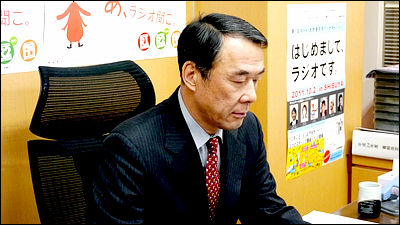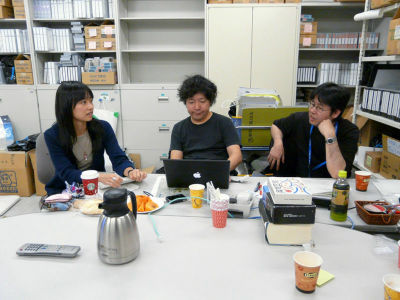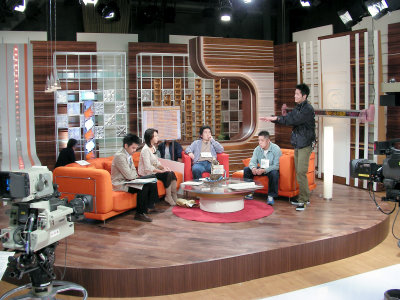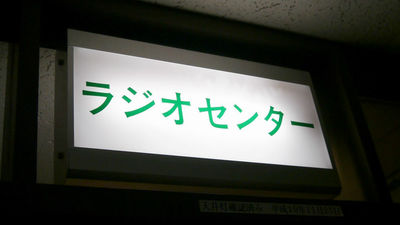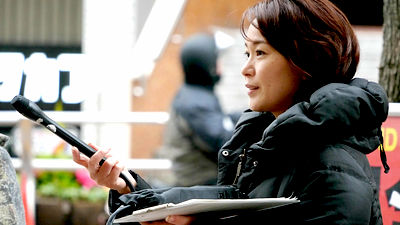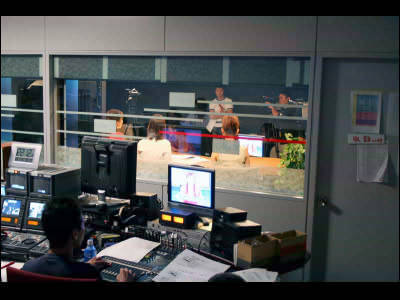"What you need is common sense" Interview with Hiroshi Ito Hiroshi Announcer, a veteran who has worked for more than 30 years at NHK

Japan Broadcasting Corporation NHK (Japan Broadcasting Corporation), Japan's largest broadcasting station, which has always watched Japan's "broadcasting" as a pioneer of Japan's broadcasting business since 86 years since the Tokyo Broadcasting Corporation, the predecessor of the company, started broadcasting. Such work related to radio broadcasting of NHK is in NKH broadcast center in Shibuya "NHK Radio Center"And news etc. are being disseminated nationwide under a 24-hour operation system.
Since I had the opportunity to talk with people working at such NHK radio center this time, I have heard the back side of the world that supports the foundation of the radio broadcasting business.
First of all I was talking about Hirohide Ito, executive announcer of the announcement room, big veteran of more than 30 years of service at NHK.
GIGAZINE (hereinafter, G):
Even if we say interview for the time being this time, it seems that we just want to listen to the story.
Announcement room Executive · announcer Hirohide Itoh (Ito):
OK. I have taken care of the work of the caster in NHK, that is, among announcers. At first it is from Fukushima broadcasting station of local broadcasting station. Then I went from Nagano from Nagano to Nagoya from Fukushima and came to Tokyo, so I went to Sendai once again and came to Tokyo again. What I was in charge was the news program of the local broadcasting station. Because I was a news program because I was a news program. I came to Tokyo from TV news on Saturday and Sunday afternoon. Then I left there once, did the director of the political program and do the caster as well. At that time, I was going to the side that made NHK specials, and after that it was in charge of the morning caster in the morning at 6 o'clock in the morning.
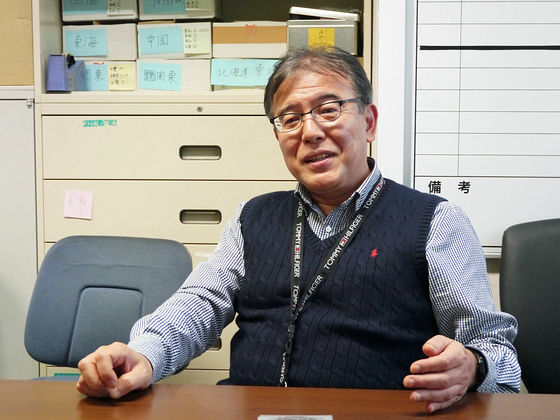
G:
Yes. There was.
Ito:
I was in charge of 7:00 on Saturdays and Sundays of the same program and since 5 o'clock I was in charge of the first caster of "Morning Japan" in the earliest time zone.
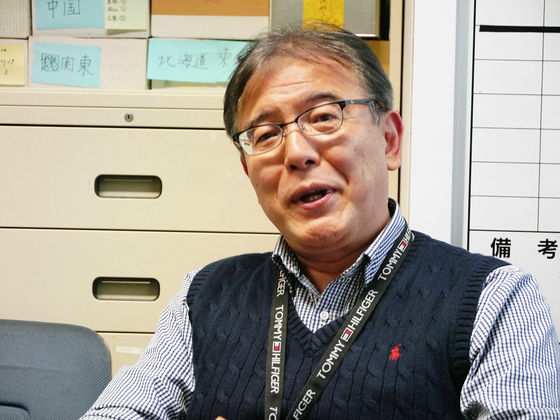
G:
Is it 5 o'clock in the morning?
Ito:
That's right. So, I went to Sendai Broadcasting Station, took charge of Sendai's evening news program and returned to here, then I was in charge of the 19:00 TV news on Saturday and was in charge of a program called "Evening News" on Saturday I did it. Even if you listen to people, TV is rather young media, is not it? Because the radio is listening to elderly people as well. When I became a veteran to some extent, I was in charge of radio daytime news and 19 o'clock news, saying "We are in charge of radio programs." And I am in charge of this "evening news" program, so that I can have a new program, and now I will arrive. So, in retrospect, is it almost like this?
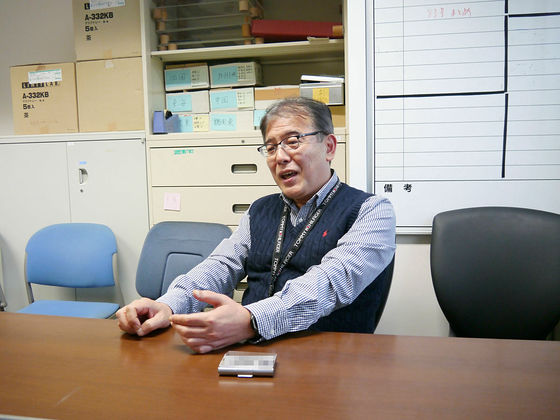
G:
Something 's been tremendously' blurred '.
Ito:
I agree. I am in charge in such a feeling.
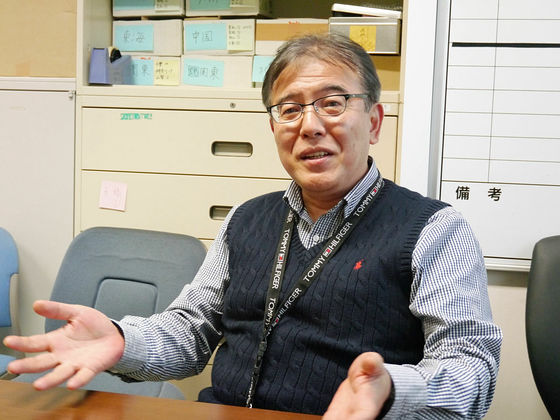
G:
I see. Is there something in television and radio that you have to change something like a way of talking a bit?
Ito:
Whether it is necessary to change or television is rather nature of saying "to tell everyone". In other words, since many people, old age and young man are watching, I will tell "everyone" the news that is happening today "today". That's why you should tell this as "This is what is happening now", is not it? And the radio is rather rather like 'I will tell you.' In other words, rather than having everyone in front of the TV screen, you listen to it, you listen by yourself, or listen to it with earphones on the way of commuting, you can assume that many such shapes are "gathered in front of a lot of radio It's not like the old style like the one? Then, in the case of a radio, I will tell you even if it is a news program even if it is a program in the form of "I am talking to you now" as much as possible.
So "Evening news" or something, it is easy to establish two-way. If you receive mail or voice from listeners, you can respond to it. Because it is a style that calls "everyone" as if it is a television. Well, there are also a number of programs aiming for a direction that is not so now. Basically, however, it is such style, especially if it is news. For example, in the coverage of the earthquake this time, I was in charge of the report of the earthquake disaster of the radio, but even at that time the television showed the picture, "Well, it's like this now" Well, news Therefore. But the radio is not so, "I think you, a ten-meter of 10 meters will come, please escape from danger," I think now that it is not the radio's way of communicating.
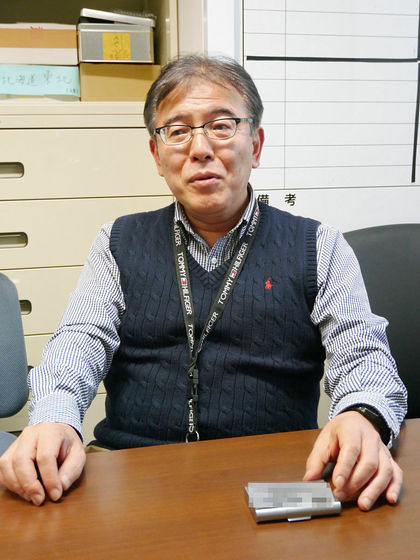
G:
I see. There is definitely a definite difference when you say so.
Ito:
Because the intention is that the people who are producing wish to aim at each program "I want you to listen like this" "I want to deliver to these people." Perhaps it seems like "NHK's news is the same no matter where I put it" (laugh) because I have not seen it all. If you look properly, you can see that each one has a feeling of "like these people", "like this" and "I want to tell this kind of news mainly".
In that sense, in NHK there has never been a program of "two-way". In other words, there were things like getting emails from viewers on various programs, introducing them by fax or letter, but I got opinions and answered their opinions concerning the main program of the program, that kind of opinion came There were different opinions and different stories, there were no such programs. The program that such interactive exchanges themselves are the main of the program, that is, the main skeleton is said to be the first interactive news program in NHK for the first time this "evening news" is the first interactive news program. In that sense, I am now in the 4th year, but I think that I am considerably consolidating. In the beginning, it was not so much if you said that you would get more and more opinions, and after all there was something inevitable that you had to balance. In the case of NHK, we will respect not only major opinions but also minority opinions. When there are different ways of thinking and different opinions, we will balance them, put both opinions properly, accept them and broadcast. Because this is one basic idea of broadcasting. In that sense, it is necessary to balance things and broadcast, then the opinions that conflict from each other, neatly, if it does not come up with such an opinion, this is to investigate properly and broadcast it. It is already 4 years now, so in that sense it has become established a lot and truly diverse opinions came to come properly.

G:
Was there something like a time when it turned out to be known that "I did not start to settle" in the four years?
Ito:
I felt "Oh this program is enough, I can not go" in the first month after the start of the broadcast.
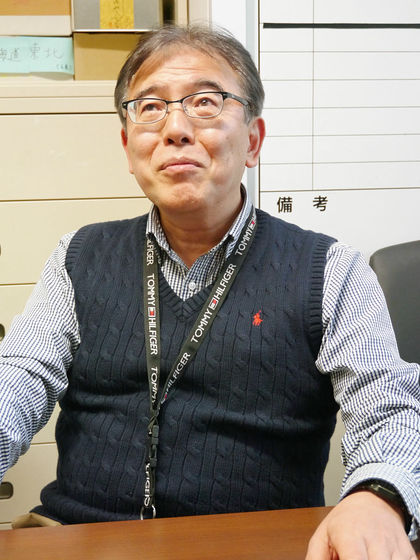
G:
He said that he had a prompt response.
Ito:
There was a response.
G:
Is the neighborhood clearly understood by the trigger of something if it is doing, or is it somehow obscurely understood?
Ito:
Again, as I said earlier, I think it depends on whether "every single person" has accepted this program properly when thinking "to each person". As opinions to accept will come, it will become reliable on this program. If there is no trust in the program, not a good opinion will come. So when I see the reaction from you, I feel that this program itself has been accepted and heard it properly. If guests are politicians from experts, there will be people who are also very ordinary and those who are doing NPO activities. Various people come to the studio and they come out on the phone, but those people also say, "I am listening, it is OK if that program is OK." Mr. Ooko (Mr. Hiroyuki Oko who set the interview for this time) I think that something is always said in such a way when negotiating, I think that it is a sign that everyone is listening to you as well. True, I feel that the program is established.
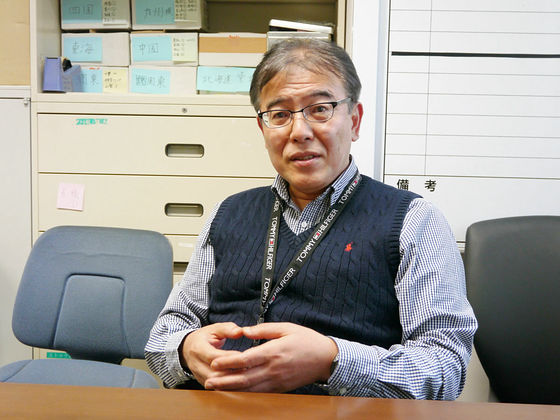
G:
Although it becomes a question of the last person, it seems like advice, such as "I wish I could do this kind of thing?" For those who are willing to work like this, an announcer, etc. If there is something like that, please.
Ito:
What is needed is "common sense".
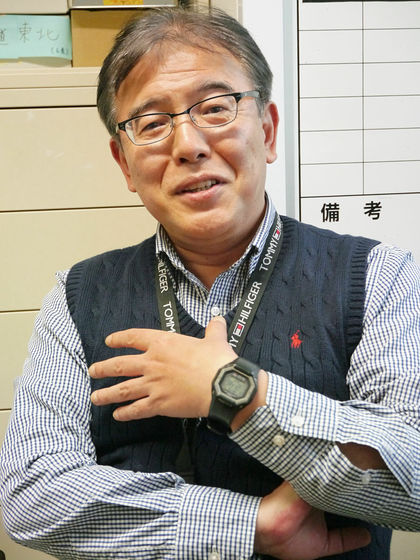
G:
"common sense"?
Ito:
Even young people, to wear common sense. It is impossible to wear it immediately, but it is important to always think about "What is common sense?" Apart from that, I did not do anything else special (laugh) But that's not the case though.
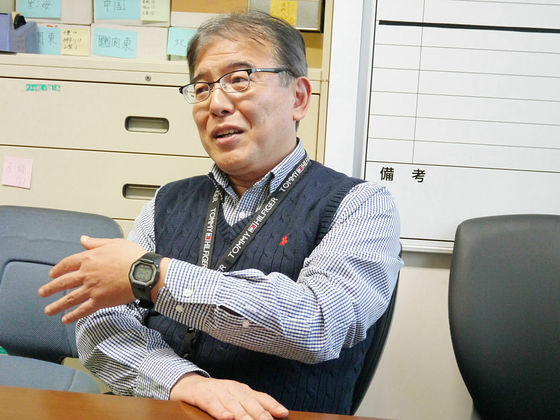
G:
That means that there was something like an episode that realized that "things like common sense are important" after all?
Ito:
Although it may not be related to this interview, we will make a program called "Constitution Memorial Day Special" in the political program. Then you will do the most ridiculous places. When I did it, Japan's international contribution. We are going to dispatch PKO etc. Then, of course, there is what is common sense of your age. Then, I hit the people who have various ideas for various people.
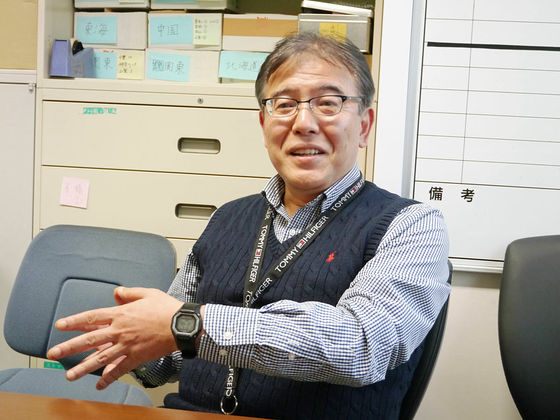
For example, a young woman who went to the poorest country in the youth Overseas Cooperation Volunteers and got a birthday, "a lot of people die (one after another) in the other." In such circumstances, Japan does other things While there is a person who says that there is a thing "While interviewing the commander who came back from the PKO, saying" Since it is military, it is possible to do so if it can cooperate with each country, that is better " . But neither one denies each other. By listening to stories from those who have such various ways of thinking, people who have done various experiences and practices, the common sense in me that I had at the beginning will expand more and more.
Everybody discusses while making a program. "But since people are actually going, it is better for you to listen to the words of those people" After all, when you listen to the story, you have persuasive power. When I listen to the opinions of the people who volunteered with them individually, I realize that there are also contributions that can not be done by the country, government, military, of course. When thinking all of them as big common sense of themselves, "What kind of stance, what kind of development do you want to make with this program?" "What kind of materials are required and who are required to be present at the studio? What kind of discussion should I do? "
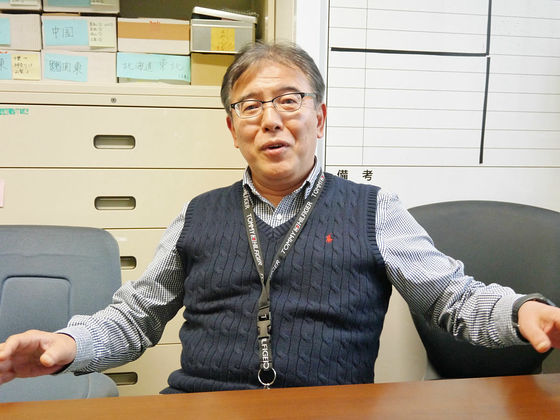
Since then, everyone here is a kind of people who came out from an ordinary school as usual, but while still making such things, the range of common sense that each individual has is widening It is also the power to incorporate various opinions from then on, the ability to properly accept the opinion comes, so it is sometimes convinced that many people listen to it a lot. Some people say "No it is different" while listening, others say "No, that's right." That is because there are various ways of thinking in this country. I try to make such a program that can properly convey such a voices as "your voice as voice" well. So I think that such experiences are now living in this time (program).
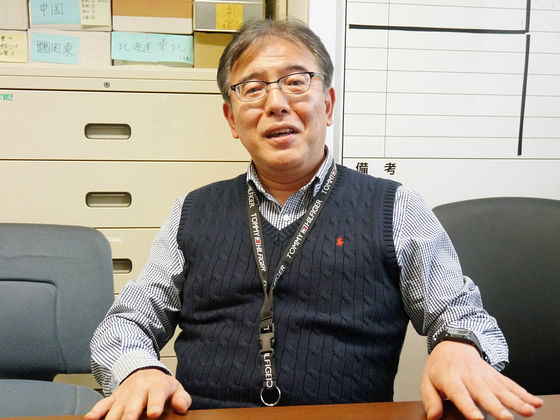
G:
I see. Thank you very much for putting together beautifully beautiful!
· Continued
A secret of full-time work that has never been absent from work, NHK Radio Caster Interview with Aiko Arie - GIGAZINE
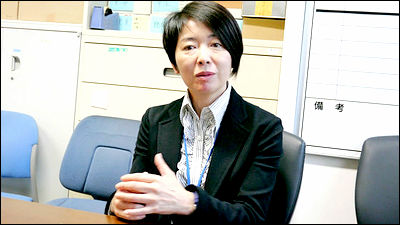
Related Posts:
in Interview, Posted by darkhorse
